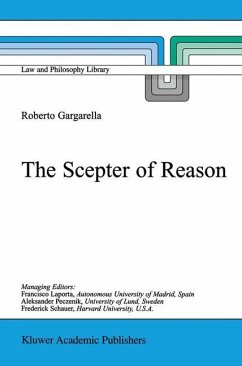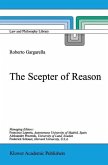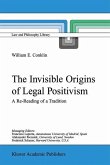This book explores the origins of Anglo-American Constitutionalism, from both a philosophical and a historical perspective. It attempts to show that the institutional mechanisms incorporated into the American Constitution were modeled under a strong bias against collective discussion. The book also examines the alternative institutional system then proposed by a different and more radical tradition of thought, and evaluates this alternative from the ideal of a deliberate democracy. The Scepter of Reason challenges much of the current academic literature on the philosophical foundations of modern constitutionalism, and advances suggestions for a different approach. It will be particularly attractive for legal scholars, political scientists, and graduate and undergraduate students interested in Constitutional Theory, Anglo-American History, and Democratic Theory.
It is not unusual that formal and informal discussions about the political system, its virtues, and its many defects, conclude in a discussion about impartiality. In fact, we all discuss impartiality when we talk about the best way to equally consider all viewpoints. We show our concerns with impartiality when, facing a particular problem, we try to figure out the best solution for all of us, given our conflicting interests. Thus, the quest for impartiality tends to be a common objective for most of us, although we normally disagree on its particular contents. Generally, these formal and informal discussions about impartiality conclude in a dispute between different "epistemic" conceptions. That is to say, simply, that in these situations we begin to disagree about best procedure to defme the more neutral, impartial solution for all of us.! Basically, trying to answer this question we tend to fluctuate between two opposite positions. According to some, the best way to know which is the more impartial solution is to resort to a process of collective reflection: in those situations we have to consider the opinions of all those who are possibly affected.
Hinweis: Dieser Artikel kann nur an eine deutsche Lieferadresse ausgeliefert werden.
It is not unusual that formal and informal discussions about the political system, its virtues, and its many defects, conclude in a discussion about impartiality. In fact, we all discuss impartiality when we talk about the best way to equally consider all viewpoints. We show our concerns with impartiality when, facing a particular problem, we try to figure out the best solution for all of us, given our conflicting interests. Thus, the quest for impartiality tends to be a common objective for most of us, although we normally disagree on its particular contents. Generally, these formal and informal discussions about impartiality conclude in a dispute between different "epistemic" conceptions. That is to say, simply, that in these situations we begin to disagree about best procedure to defme the more neutral, impartial solution for all of us.! Basically, trying to answer this question we tend to fluctuate between two opposite positions. According to some, the best way to know which is the more impartial solution is to resort to a process of collective reflection: in those situations we have to consider the opinions of all those who are possibly affected.
Hinweis: Dieser Artikel kann nur an eine deutsche Lieferadresse ausgeliefert werden.








